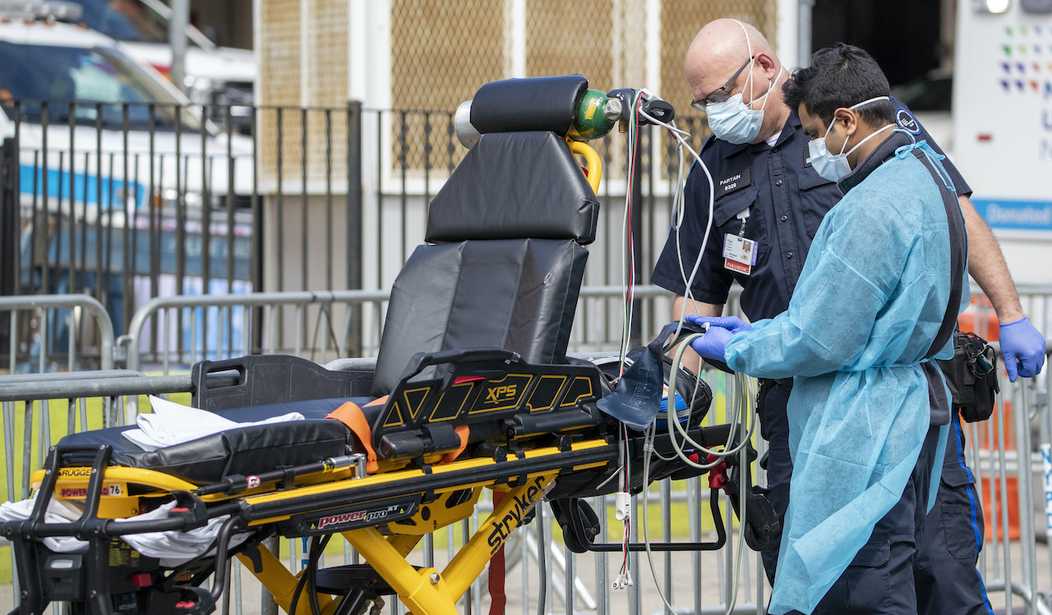Doctors have been promoting using a combination of hydroxychloroquine, Zithromax, and Zinc early as an outpatient with a diagnosis of COVID-19 based on the experience of their patients. Today Gilead announced their drug has met expectations when it is used earlier. Neither has shown as much success treating critical patients whose illness has progressed to requiring a ventilator. Pulmonologist Dr. Thomas Yadegar, ICU Director of Providence Cedars-Sinai, may have figured out why.
In an interview with Glenn Beck, Dr. Yadegar explained how the treatment regimen he and his team have been providing has evolved over the last six to seven weeks. Early in the pandemic, Dr. Yadegar and his team were bewildered at how patients were presenting. They were all COVID-19 positive, yet they all seemed to be suffering from a different disease. The team only treats patients requiring critical care, so they were treating those with the most severe illness.
He contrasted this with other viruses. Specifically, he talked about the H1N1 epidemic. Once you knew a patient had that strain of flu, a predictable set of things would happen to them. This allowed doctors to develop treatment plans based on a predictable disease progression. This was not the case in critically ill COVID-19 patients.
You have heard the constant range of new symptoms announced in the media that include strokes, blood clots and even Guillain-Barré syndrome. Dr. Yadegar said more important is that every patient seemed to be having their own disease progression. Out of frustration, he began doing research. When he learned that some patients with the virus were experiencing a Cytokine Storm, he and his team started developing a new approach to patient assessment and treatment.
In the interview, he said COVID-19 actually causes two problems. The first is an infectious upper respiratory disease caused by the virus which may be anything from asymptomatic to severe. It can cause complications similar to a severe influenza such as pneumonia and may still be deadly in compromised patients.
However, the majority of patients coming into their ICU displaying rapid deterioration and requiring ventilation have inflammatory markers consistent with Cytokine Storm Syndrome. This syndrome is an overactivation of the patient’s own immune system. It causes the patient’s own immune defenses to attack their organs. They are basically suffering from an induced autoimmune disorder which can cause the full range of complications, depending on the patient, including atypical clots and myocarditis that are being reported.
If the patient has this response, it progresses at an extraordinary pace, according to Dr. Yadegar. A patient can go from needing mild supplemental oxygen to requiring intubation for a ventilator in as little as six to twelve hours. However, these inflammatory markers can be detected and the doctors at Providence have employed a counterintuitive treatment after ruling out other causes for the symptoms that the patient is having. They are treating the patients with this clinical profile with aggressive anti-inflammatory drugs and immunosuppressants. In all cases since beginning this protocol, no patient has required a ventilator, and none have died.
To date, the team has treated between 30 and 35 patients this way, according to Dr. Yadegar. However, there is a rub. They have been treated with 30-35 different regimens based on their clinical profiles. It is also absolutely essential that the inflammatory process that accompanies Cytokine Storm Syndrome is confirmed. Giving the medications that decrease inflammation and immune response could be deadly to a patient not suffering from this condition.
So, while there is no magic bullet, the ICU team is continuing to refine the protocol to deal with different patient presentations. The idea that a patient could be suffering from two different disease processes that need to be viewed independently is a new insight. It also helps to explain the stunning range of symptoms frontline clinicians are reporting.
Another important point is that what we are counseling patients to do needs to change. Often patients are being told to recover at home until they feel short of breath. Dr. Yadegar says the earlier the immune system malfunction is detected, the earlier it can be treated. This may decrease the damage caused to other organs, giving patients a better chance at full recovery. Telling people to delay seeking treatment until they feel like they are having difficulty breathing may not be the best advice. As he noted during the interview, that shortness of breath can deteriorate to needing a ventilator in a matter of hours.










Join the conversation as a VIP Member